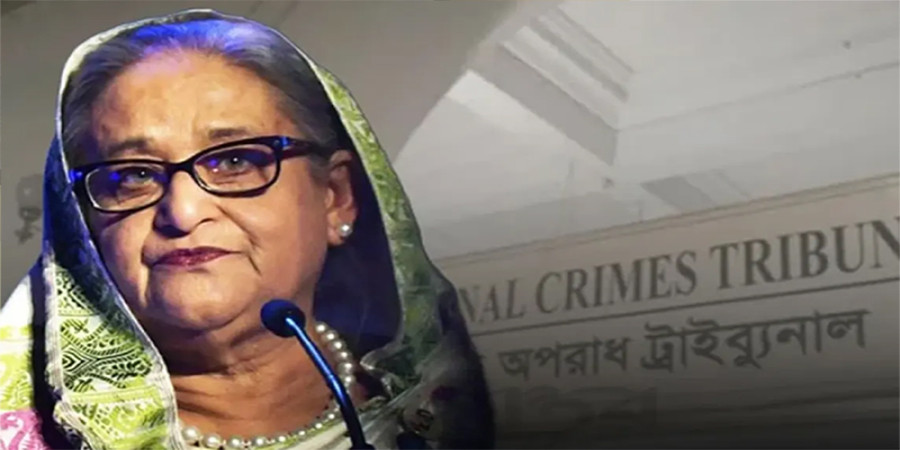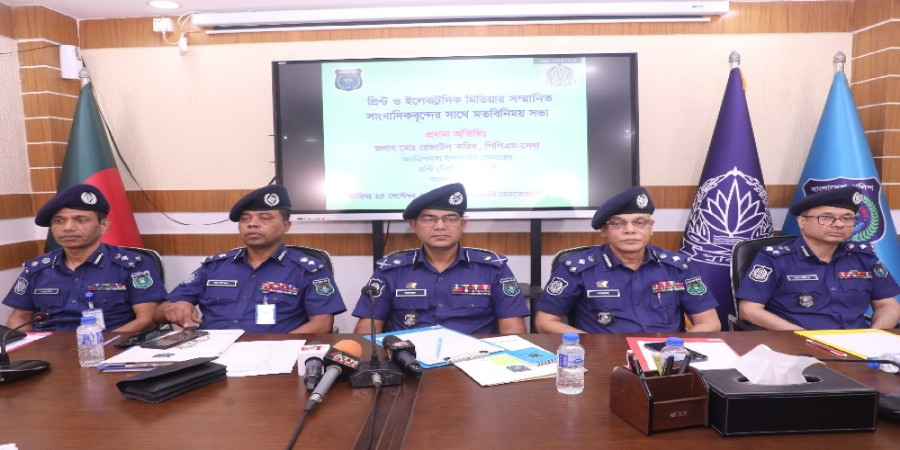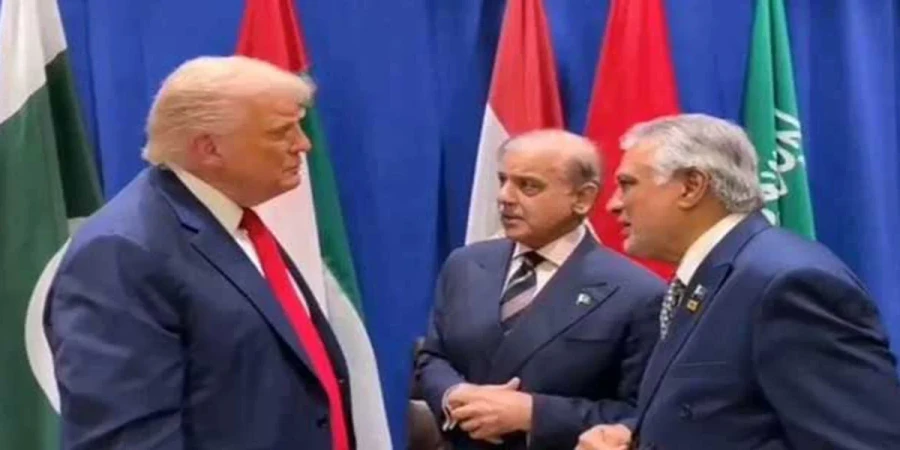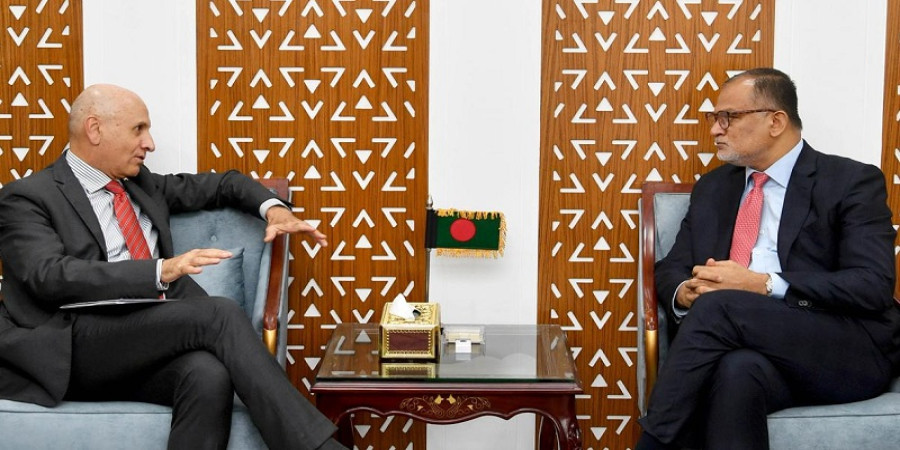
ছবি: -Collected Photo
The International Crimes Tribunal-1 in Dhaka is moving forward with the trial of former Prime Minister Sheikh Hasina and two of her senior officials over charges of crimes against humanity allegedly committed during the student-led uprising in July–August 2024. Prosecutors have indicated that the recording of witness testimonies may be completed by October this year, paving the way for the trial to enter its next stage.
On July 10, 2025, the tribunal formally framed charges against Sheikh Hasina, former Home Minister Asaduzzaman Khan Kamal, and former Inspector General of Police (IGP) Chowdhury Abdullah Al-Mamun. The prosecution accuses them of orchestrating and directing crimes against humanity during the violent suppression of mass protests that ultimately led to the fall of the Awami League government in August 2024.
Speaking to journalists at the tribunal premises on Sunday, August 17, Prosecutor Mizanul Islam explained that testimony from material witnesses would likely be wrapped up by September, with proceedings possibly extending into the first week of October at the latest. “Apart from the investigating officer, the testimonies of our primary witnesses should be concluded within September. If needed, it may continue briefly into October,” he said.
Testimonies resumed on Sunday, marking the fourth day of witness examination. The tribunal, chaired by Justice Md. Golam Mortuza Mozumdar alongside two other judges, heard and cross-examined two witnesses: vegetable seller Abdus Samad and a resident named Mizan Mia. Both men provided eyewitness accounts of violence during the crackdown on protesters. Their testimonies were cross-examined by state-appointed defense lawyer Md. Amir Hossain, who is representing the absent defendants.
Prosecution arguments were presented by Mizanul Islam alongside Prosecutor Gazi M.H. Tamim, with Chief Prosecutor Mohammad Tajul Islam and senior prosecutor Abdus Sattar Palowan also present. Security was visibly heightened during the proceedings, as police transported former IGP Abdullah Al-Mamun to court from prison in a heavily guarded van.
The trial gained momentum after the tribunal earlier approved Al-Mamun’s application to testify as an approver. By pleading guilty and turning state witness, the former police chief has agreed to assist the court in establishing the chain of command and decision-making processes that led to the violence. His cooperation is expected to play a crucial role in substantiating the prosecution’s charges against Sheikh Hasina and Asaduzzaman Khan Kamal, both of whom remain in hiding abroad.
The tribunal had previously issued public notices in June 2025, ordering the two absconding defendants—Hasina and Kamal—to surrender within seven days. Notices were published in both Bengali and English newspapers to ensure wider circulation. However, when neither defendant complied, the tribunal proceeded with appointing state defense lawyers on their behalf and moved forward with the indictment.
The charges formally accepted on July 1, 2025, encompass five counts of crimes against humanity, including murder, persecution, torture, and mass killing. These charges stem from allegations that during July and August 2024, government forces, aided by ruling party activists, carried out systematic attacks on student demonstrators and civilians demanding Hasina’s resignation.
Witnesses and complaints submitted to the tribunal detail numerous incidents of indiscriminate shootings, arbitrary detentions, enforced disappearances, and targeted killings. Rights groups have described the violence as one of the most severe crackdowns in Bangladesh’s modern history.
The fall of the Awami League government on August 5, 2024, in the wake of nationwide student uprisings, paved the way for the reconstitution of the International Crimes Tribunal. The newly restructured tribunal immediately prioritized investigating and prosecuting crimes committed during the uprising. The case against Sheikh Hasina was registered as the tribunal’s first formal proceeding following its revival.
Prosecutors argue that Hasina, as the head of government at the time, bears ultimate responsibility for the actions of her subordinates. They claim that the crackdown was centrally planned and executed with the approval of both the Home Ministry and the highest levels of the police command. Former Home Minister Kamal is accused of directing the security forces, while ex-IGP Al-Mamun allegedly oversaw operational deployment that led to mass killings and other atrocities.
Sunday’s session underscored the tribunal’s determination to expedite the trial. Already, four days of testimony have been completed, with additional witnesses scheduled to appear in the coming weeks. The prosecution has expressed confidence that sufficient evidence will be presented to prove the charges beyond reasonable doubt.
Beyond this case, Sheikh Hasina faces two additional cases at the tribunal. One relates to alleged enforced disappearances and extrajudicial killings that occurred during her 15 and a half years in power. The other concerns the violent dispersal of Hefazat-e-Islam’s protest at Dhaka’s Shapla Square, in which dozens of demonstrators were killed. These proceedings are expected to run concurrently with the July Massacre case, highlighting the extensive scope of allegations against the former prime minister.
The tribunal has also faced challenges in securing cooperation from absconding defendants. Nevertheless, legal experts note that international law permits trials in absentia under certain conditions, particularly for crimes of such gravity. Appointing state defense lawyers ensures that the proceedings maintain due process while preventing delays that could undermine justice for victims.
The events of July–August 2024 remain etched in Bangladesh’s collective memory. What began as student-led protests against rising costs, unemployment, and allegations of corruption quickly grew into a mass uprising, drawing widespread public support. In response, security forces launched a brutal crackdown, which, according to survivors and rights monitors, involved indiscriminate firing on crowds, widespread arrests, and killings of unarmed civilians. Reports of enforced disappearances and torture in custody also surfaced.
Human rights organizations both domestic and international have welcomed the tribunal’s actions, viewing them as a critical step toward accountability for state-led atrocities. Families of victims have expressed hope that the proceedings will finally deliver justice and recognition for their suffering.
Still, critics caution that the tribunal must maintain transparency and adhere strictly to legal standards to avoid any perception of political retribution. They argue that accountability for crimes against humanity is essential, but the process must remain above partisan interests to truly contribute to national healing.
For now, the focus remains on completing witness testimonies within the projected timeframe. If the prosecution’s schedule holds, the trial could move to closing arguments before the end of the year, setting the stage for a historic verdict in early 2026.
As the tribunal continues its work, the trial of Sheikh Hasina, Asaduzzaman Khan Kamal, and Abdullah Al-Mamun stands as a watershed moment in Bangladesh’s quest for justice. Whether the process will bring closure to victims’ families or deepen political divides remains uncertain. What is clear, however, is that the case has already marked a turning point in the country’s struggle to reckon with the violent events of 2024.
repoter






